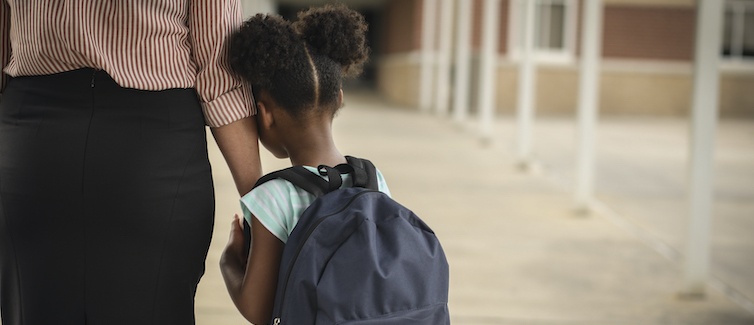If you have a child who is struggling with mental health or an emotional disorder, Child and Adolescent Crisis Team Intervention Services can help.
The 25-year-old program, part of resolve Crisis Services, helps children and adolescents with emotional disorders who are at high risk for psychiatric hospitalization or out-of-home placement. The program serves all Allegheny County residents.
Trained clinicians can help your child at home or at school. They can even assist with helping your child get to school.
Never Miss a Beat!
Subscribe to Our HealthBeat Newsletter!
Thank you for subscribing!
You can now select the specific newsletters you'd like to receive.
You are already subscribed.
Subscribe to more newsletters in our email preference center.
Sorry, an error occurred. Please try again later.
Get Healthy Tips Sent to Your Phone!
How Child and Adolescent Crisis Team Intervention Services Helps Children and Families
Both resolve Crisis Services and Child and Adolescent Crisis Team Intervention Services aim to prevent unnecessary hospitalizations.
Child and Adolescent Crisis Team Intervention Services has a much broader scope. “We are a hospital diversion program, but we’re not just crisis-based. We’re proactive,” says Danielle, a crisis clinician. “We are flexible in providing whatever a child needs.”
Families waiting for treatment often use Child and Adolescent Crisis Team Intervention Services as a bridge. For example, UPMC Western Psychiatric Hospital may refer a child for treatment, but parents must wait for that first appointment.
“We can provide ongoing support until they get into the treatment they were referred to,” says Danielle. The team schedules home visits with families before or between treatments to see how they can be of help.
Parents also can schedule a home visit for added support during a specific situation. For example, a child with a history of behavioral issues may not react well to having a cell phone taken away. A two-person team of clinicians can be on hand to help.
Child and Adolescent Crisis Team Intervention Services clinicians get to know the families and children they work with. “We get enmeshed to make sure we assess all their needs,” says Danielle.
Other services provided include:
- Linking families to other providers in Allegheny County, from behavioral health programs to addiction services.
- Providing support such as transportation. The team also can make sure a child receives a psychiatric evaluation if needed.
- Helping to diffuse a crisis at school or daycare. If called by a school to help with a child, the Child and Adolescent Crisis Team Intervention Services team tries to arrive within an hour.
- Attending interagency, treatment team, and school meetings to assist in developing a crisis plan.
- Providing 24/7 crisis support through resolve Crisis Services. Parents or children can call 1-888-796-8226 for immediate help with a crisis.
How to Enroll
“You have to be enrolled in the program to get Child and Adolescent Crisis Team Intervention Services support, but you can always get immediate help with resolve Crisis Services,” says Paige, a crisis clinician. “To enroll, a family needs a referral from a hospital, CYF [Office of Children, Youth, and Families), a school counselor, or any mental health provider.”
After a referred family reaches out, the team goes to the home to complete an intake form. The interview takes about 45 minutes. A child who is age 14 or older must be present and must agree to enrollment in Child and Adolescent Crisis Team Intervention Services.
The program receives between 80 and 110 referrals each month. “The numbers have been growing lately. The COVID-19 pandemic has definitely created more anxiety. Family stress levels are really high now,” says Paige.
Child and Adolescent Crisis Team Intervention Services works with families from across Allegheny County and at every income level.
Who Is Eligible and How to Contact the Program
Child and Adolescent Crisis Team Intervention Services works with children as young as age 2 and can continue working with a child or adolescent until the age of 21. These services are free for any resident of Allegheny County.
For more information or if a provider has referred you, call the intake line at 412-864-5065.
If your child is in crisis and you need immediate help, call resolve Crisis Services at 1-888-796-8226. Trained crisis clinicians answer the phone 24/7, 365 days a year.
Editor's Note: This article was originally published on , and was last reviewed on .
About UPMC Western Behavioral Health
UPMC Western Psychiatric Hospital is the hub of UPMC Behavioral Health, a network of community-based programs providing specialized mental health and addiction care for children, adolescents, adults, and seniors. Our mission is to provide comprehensive, compassionate care to people of all ages with mental health conditions. UPMC Western Psychiatric Hospital is a nationally recognized leader in mental health clinical care, research, and education. It is one of the nation’s foremost university-based psychiatric care facilities through its integration with the Department of Psychiatry of the University of Pittsburgh School of Medicine. We are here to help at every stage of your care and recovery.
